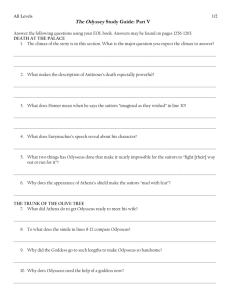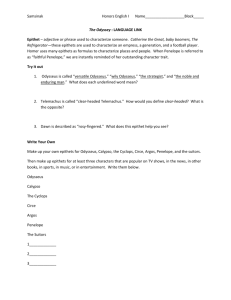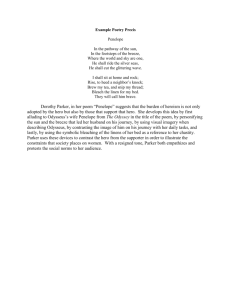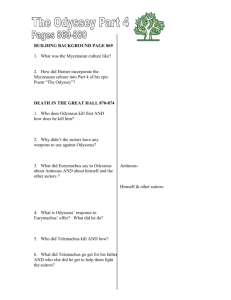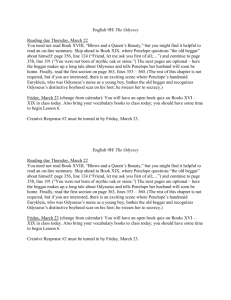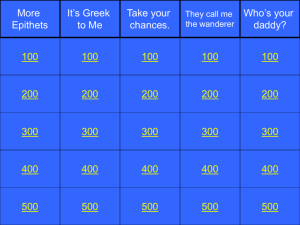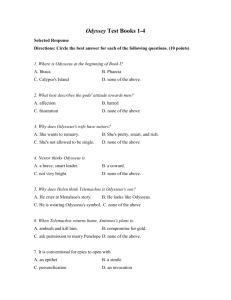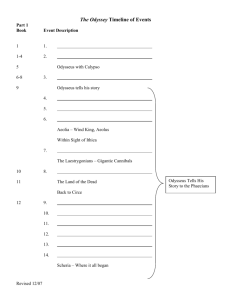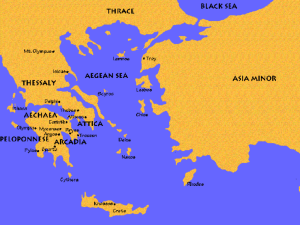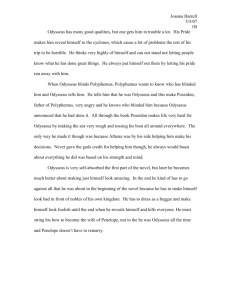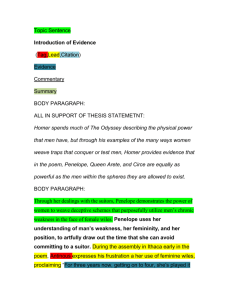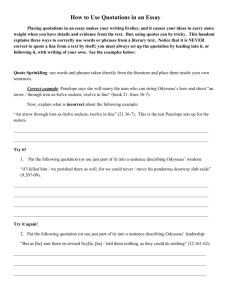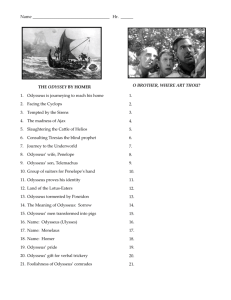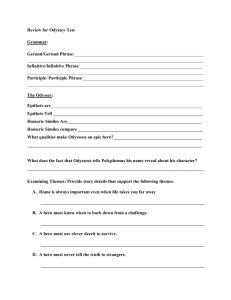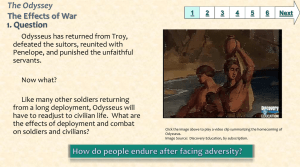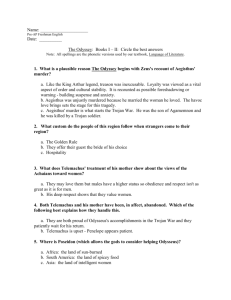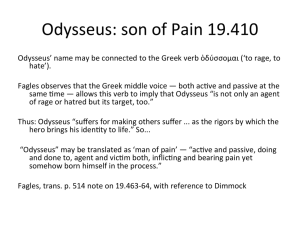Odyssey: “Penelope” (Odysseus is disguised as a beggar and sits to
advertisement
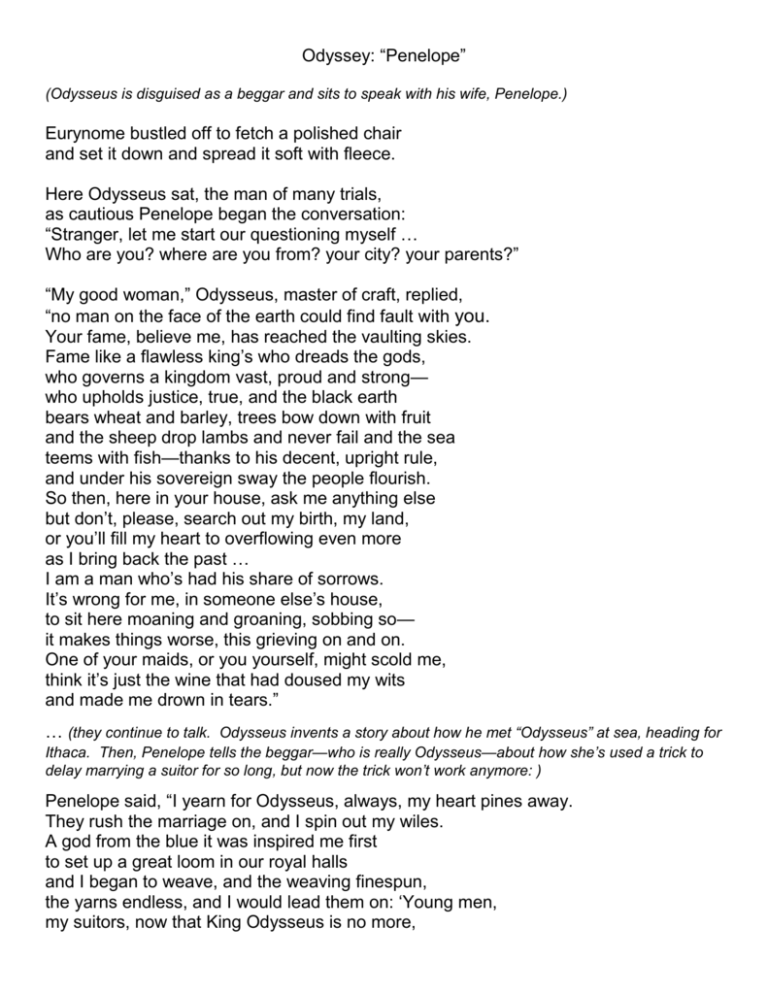
Odyssey: “Penelope” (Odysseus is disguised as a beggar and sits to speak with his wife, Penelope.) Eurynome bustled off to fetch a polished chair and set it down and spread it soft with fleece. Here Odysseus sat, the man of many trials, as cautious Penelope began the conversation: “Stranger, let me start our questioning myself … Who are you? where are you from? your city? your parents?” “My good woman,” Odysseus, master of craft, replied, “no man on the face of the earth could find fault with you. Your fame, believe me, has reached the vaulting skies. Fame like a flawless king’s who dreads the gods, who governs a kingdom vast, proud and strong— who upholds justice, true, and the black earth bears wheat and barley, trees bow down with fruit and the sheep drop lambs and never fail and the sea teems with fish—thanks to his decent, upright rule, and under his sovereign sway the people flourish. So then, here in your house, ask me anything else but don’t, please, search out my birth, my land, or you’ll fill my heart to overflowing even more as I bring back the past … I am a man who’s had his share of sorrows. It’s wrong for me, in someone else’s house, to sit here moaning and groaning, sobbing so— it makes things worse, this grieving on and on. One of your maids, or you yourself, might scold me, think it’s just the wine that had doused my wits and made me drown in tears.” … (they continue to talk. Odysseus invents a story about how he met “Odysseus” at sea, heading for Ithaca. Then, Penelope tells the beggar—who is really Odysseus—about how she’s used a trick to delay marrying a suitor for so long, but now the trick won’t work anymore: ) Penelope said, “I yearn for Odysseus, always, my heart pines away. They rush the marriage on, and I spin out my wiles. A god from the blue it was inspired me first to set up a great loom in our royal halls and I began to weave, and the weaving finespun, the yarns endless, and I would lead them on: ‘Young men, my suitors, now that King Odysseus is no more, go slowly, keen as you are to marry me, until I can finish off this web … so my weaving won’t all fray and come to nothing. This is a shroud for old lord Laertes, for that day when the deadly fate that lays us out at last will take him down. I dread the shame my countrywomen would heap upon me, yes, if a man of such wealth should lie in state without a shroud for cover.’ My very words, and despite their pride and passion they believed me. So by day I’d weave at my great and growing web— by night, by the light of torches set beside me, I would unravel all I’d done. Three whole years I deceived them blind, seduced them with this scheme. Then, when the wheeling seasons brought the fourth year on and the months waned and the long days came round once more, then, thanks to my maids—the shameless, reckless creatures— the suitors caught me in the act, denounced me harshly. So I finished it off. Against my will. They forced me. And now I cannot escape a marriage, nor can I contrive a deft way out.”
